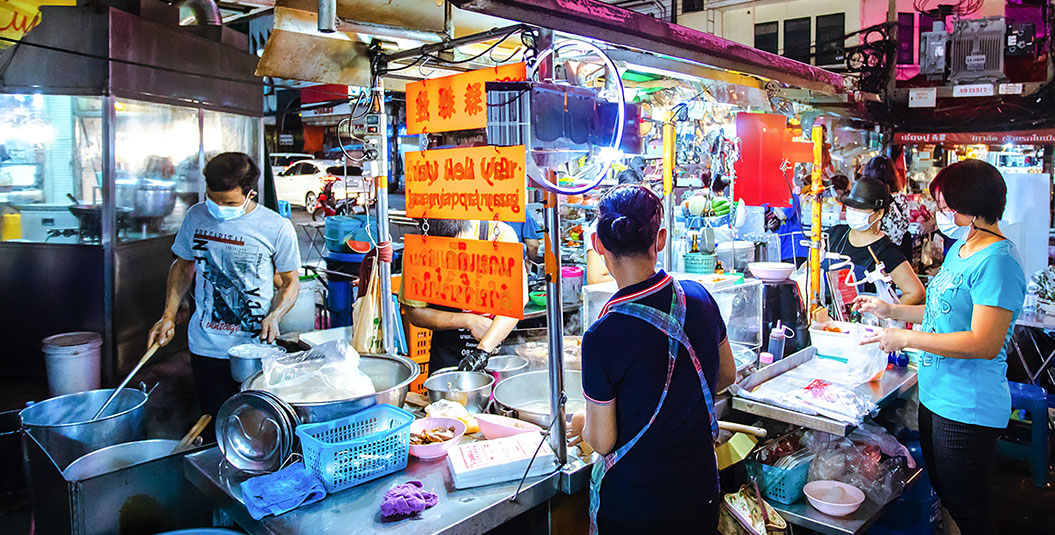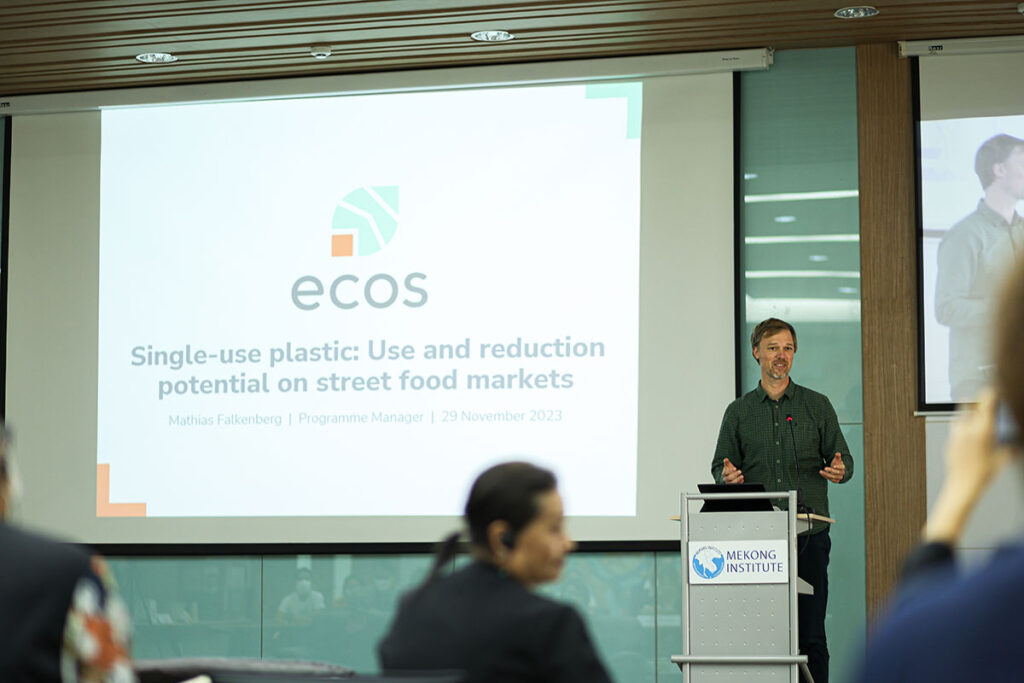Plastic pollution: Tackling a global crisis with local action
We have teamed up with the Mekong Institute in Khon Kaen, Thailand, to design and implement strategies that not only curb single-use plastics in local street food markets – but could also provide the foundation to develop international standards. We are working with local street food vendors, market managers, and customers to incentivise dining in with reusable tableware, nurture a “bring your own container” culture, and replace single-use plastics with alternative materials.

Plastic pollution knows no boundaries. It is a global crisis that requires global action. Our cooperation with the Mekong Institute is one of the many approaches that we are taking to tackle plastic pollution across different levels, to reduce, reuse, refill and repair plastics and plastic products – a core component of the UN Plastics Treaty.
With the support of the Norwegian Retailers Environment Fund (NREF), we are working with the Mekong Institute to get rid of problematic and avoidable plastic products in food service. These goals form a core part of Thailand’s Roadmap on Plastic Waste Management (2018-30), which has already banned cap seals for beverage bottles in 2019 and foam food containers in 2022. Over the coming years, more single-use plastic items will be banned.
The project focuses on two street food markets in the region. The Mor Din Daeng night market, managed by Khon Kaen University, hosts 160 street food vendors and caters mostly to students seeking takeaway and almost exclusively relies on single-use plastic to package or serve street food to its customers. The privately-owned Ton Tann market – Khon Kaen’s largest – hosts over 300 street food vendors and caters to a mixed crowd, who spend more time on the premises and dining in. Ton Tann customers who dine in are served their food in reusable tableware, including plates, bowls, cups, and cutlery.
In August, we carried out surveys in both markets, each involving 50 street food customers and 10 street food vendors, to understand the perception of single-use plastic as well as to get a feeling for the willingness and feasibility of different reduction measures, such as avoiding unnecessary single-use plastic items, incentivising dining in and “bring your own” habits for take away, introducing and optimising reusable tableware as well as the use of alternative packaging materials.

In November, the Mekong Institute and ECOS organised a workshop with street food vendors and managers. We also invited experts on plastic waste management, municipal solid waste management, and environment-friendly packaging solutions such as plant fibres and biopolymers, to share valuable perspectives on the challenges and opportunities of reducing single-use plastics in Khon Kaen’s street food markets. Guest speakers from Écotable, a network of restaurants working on environmental sustainability, presented lessons learned from ‘Ground Control’ food court in Paris, which became free of single-use plastic and throwaway containers in 2022. They identified key success factors including investment in second-hand steel cutlery and a shared dishwasher for the food court, as well as effective signage for customers and a training program for employees.
Such multi-stakeholder inputs are useful when looking ahead at developing potential international standards on reusable food packaging and reuse systems. Practical knowledge and demonstrable experience gained through this initiative have a strong potential for scaling up.
We are already excited for the project’s next steps: we will now support the markets’ management teams to develop a strategy to introduce measures for curbing single-use plastic. We will also assist the markets in implementing the necessary changes and help to carry out awareness campaigns, directed at customers, to support the uptake and success of specific initiatives.
International action on plastics may be slow and challenging, but we can already take meaningful action to reduce plastic pollution, by working with and learning from local and regional partners to inspire and achieve real impact.

 By
By 
